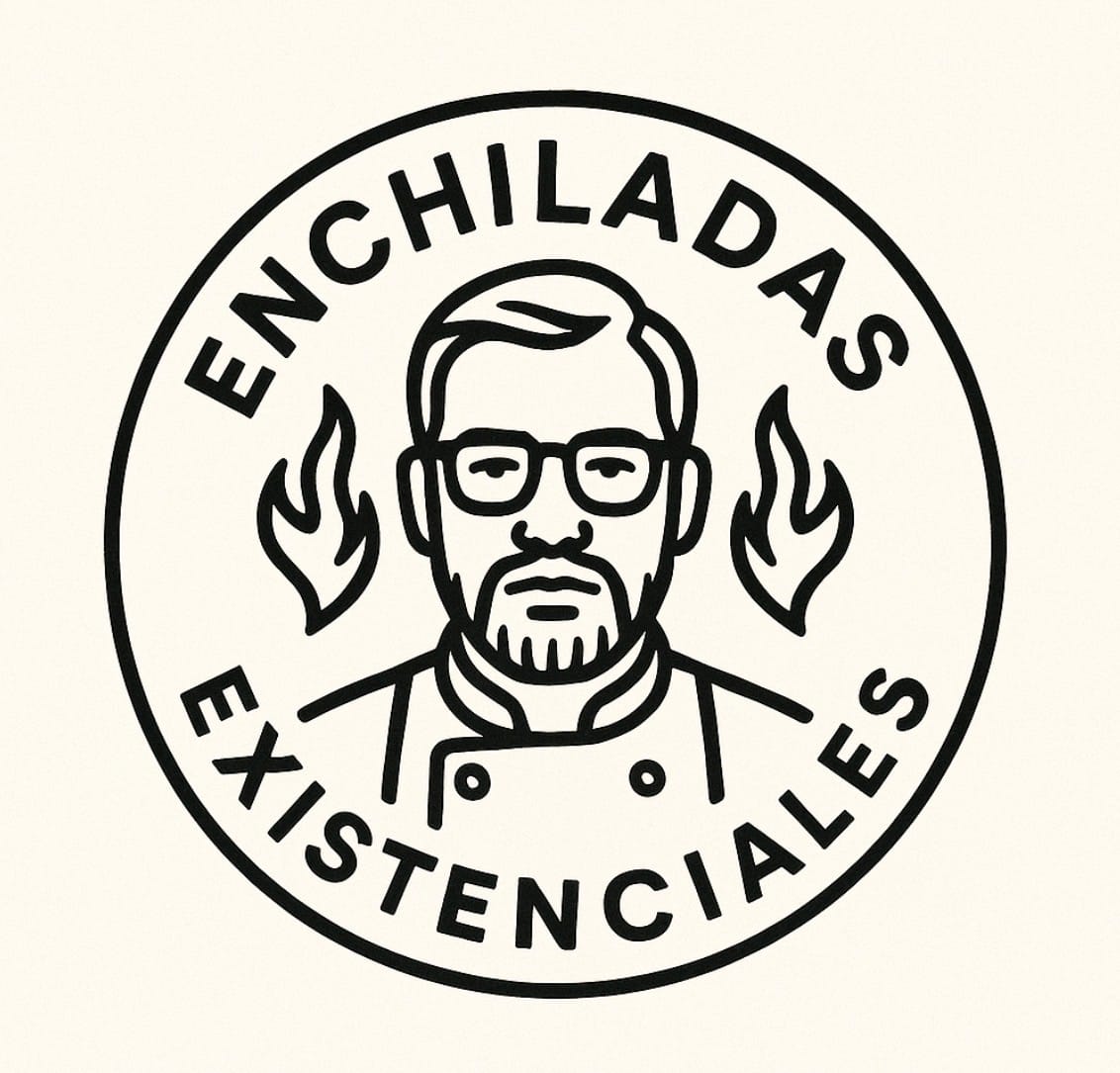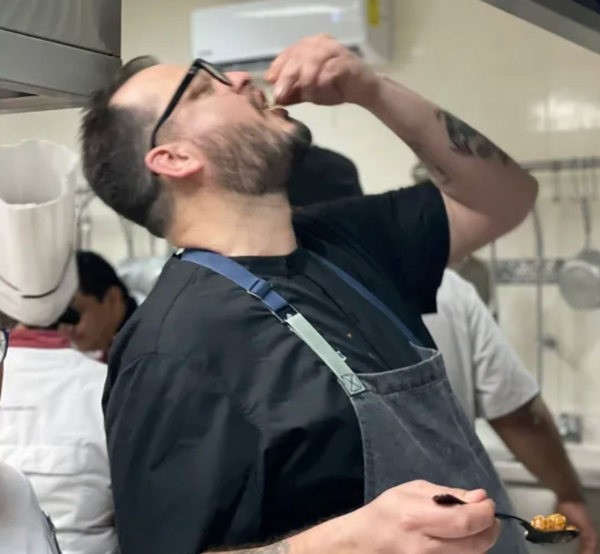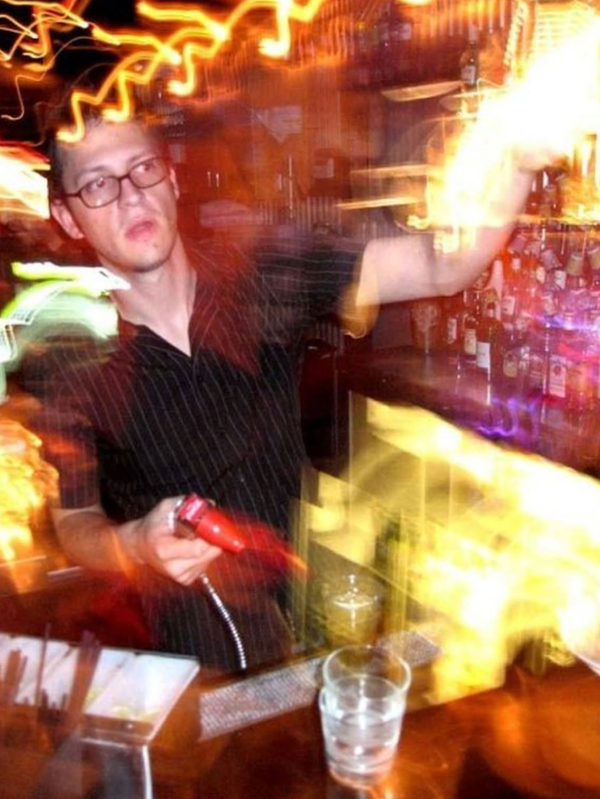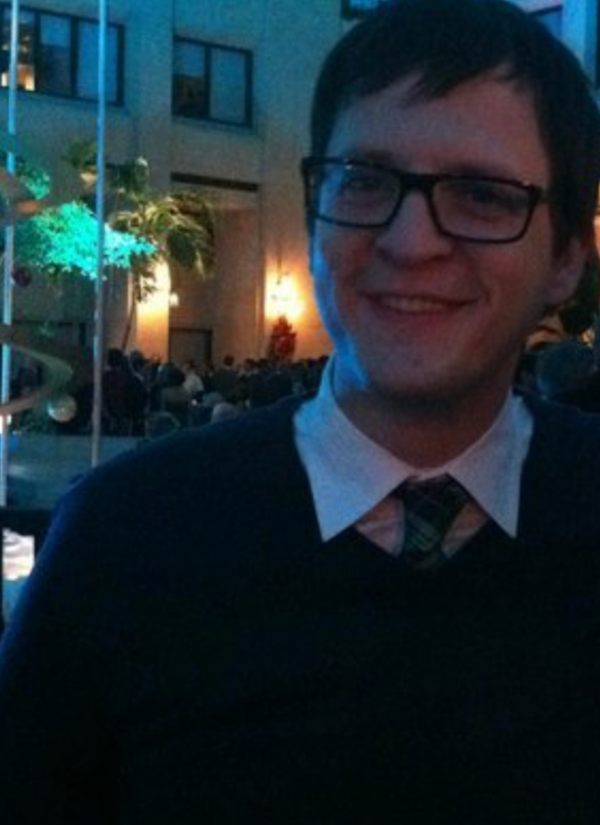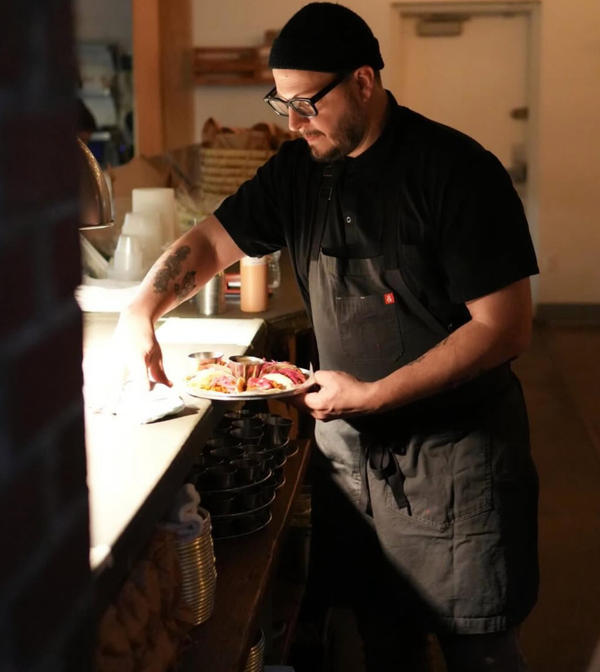Salt, Sweat, and Family
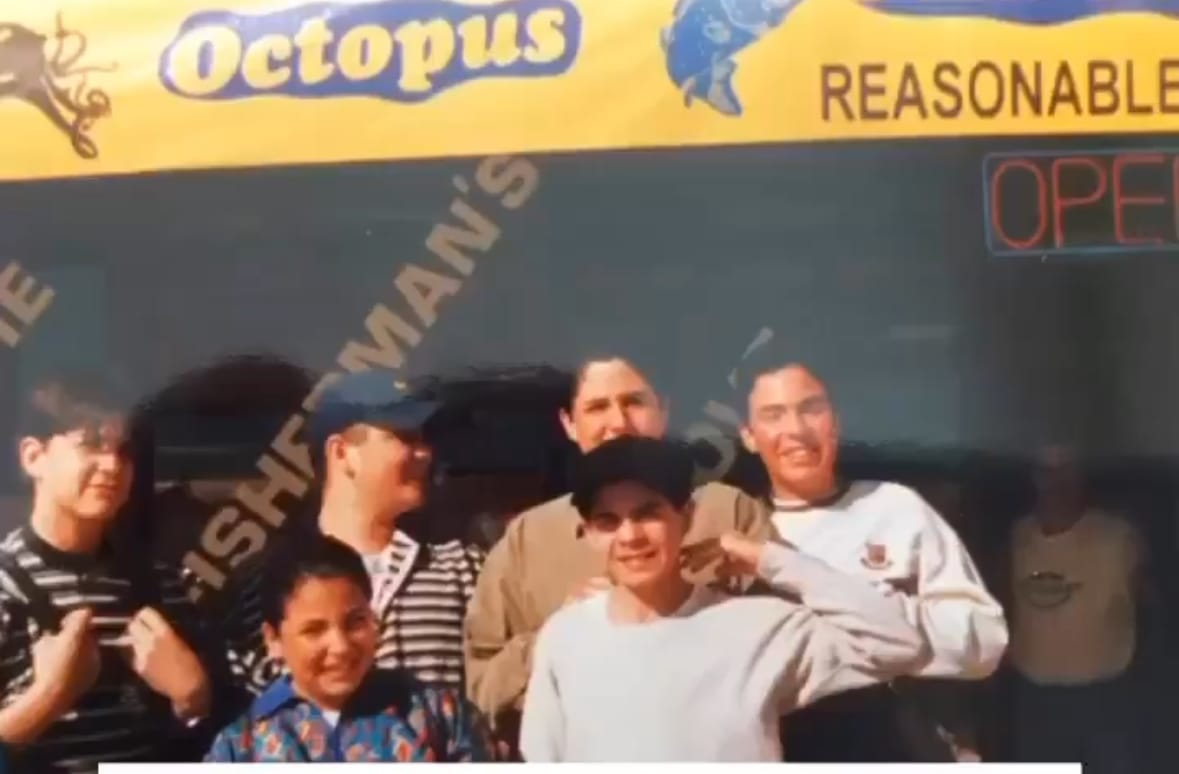
A lot of these things I’m writing are heavily prompted by my day-to-day interactions with my team and topics they trigger through conversation and sometimes just by me watching them work. They really are everything.Everyone loves to call the restaurant a family. It sounds noble, a band of weirdos bound by panic, bleeding together under the motor sounds of the hood vents. The truth is, it’s less family and more tribe of survivors. You don’t choose each other; you just happen to be standing in the same fire.
Still, somehow, that fire forges something real.
I grew up in El Paso, Texas, learning the restaurant life the hard way. Not through mentorship or glossy Food Network inspiration, but through survival. My grandparents ran a little spot that smelled like grease, bleach, and stress. The kind of place where every dollar earned had sweat on it. I was a high school kid who didn’t have the luxury of summer jobs or weekend parties. While my friends were out driving aimlessly down Mesa or hanging out at the mall, I was scrubbing pans in a three-compartment sink, peeling shrimp until my hands burned, bussing tables while pretending not to hear the arguments coming from the kitchen. There weren’t “lessons” in the motivational sense. Just a lot of “get back to work.”
But looking back, I can’t ignore their grit, the way my grandparents and family kept that restaurant alive with nothing but instinct, resourcefulness, and sheer fucking will. They built something out of nothing, day after day, with a kind of ingenuity that doesn’t come from training but from hunger. I didn’t recognize it then, but I carry it now. Through all the chaos, I learned to appreciate what I have, to depend on myself, and to see hard work as a kind of language.
Love wasn’t spoken; it was handed to you in the form of a plate of food slid across the counter: a taco de guisado, a bowl of caldo. Hot, silent, understood. The real education came from watching family members drink too much, steal from the till, throw fists and knives at each other when the pressure got too high. That’s where I learned what not to do, how not to lead, how not to let survival turn into self-destruction. It wasn’t pretty, but it primed me for what was waiting later, the brutally physical, psychologically violent chaos of my first real professional kitchen, where at the very least I already knew how to keep my head down, hustle, and survive the adversity.
I’ve worked kitchens where the air was thick with resentment and fryer grease, where cooks showed up hungover, broke, and still put out perfect plates because that’s what pride looks like when this is all you’ve got. I’ve worked in Michelin cathedrals where perfection was religion, and the priest at the pass screamed your sins back at you in front of the congregation. All of them sang the same song, with a different pitch.
Everywhere I’ve cooked, from the kitchens of white coat tweezer chefs to the basement, volume crushers, to hand-shaping masa in pop-ups that would later become Amparo, I’ve seen the same routine: the ones who stay are the ones who can take the hit, keep cooking and reap the rewards. The ones who fall apart are the ones who filled themselves into thinking it was ever all about the food.
When you’re the one wearing “Chef” around your neck, you learn fast that the job isn’t about you and it isn’t about artistry. It’s about anthropology. You’re managing a small, combustible civilization built on nicotine, trauma, and adrenaline. You’re expected to be everything for everyone all the time; the boss, the counselor, the negotiator, the stand-in parent, the communicator, the occasional punching bag. You’re expected to know what’s right even when every piece of the system is wrong.
No one teaches you how to carry that. They just hand you the keys and an oven that only half works and say, good luck.
So you try to make it work. You try to build the kind of space that doesn’t chew people up and spit them out. You feed them, teach them, listen when they talk shit about you to your face or behind your back, because you did the same thing once. You tell yourself you’re doing better than the ones who came before, and some days you believe it. Other days, you’re just holding the pieces together with duct tape and caffeine.
Most nights, it’s not pretty. People break down, blow up, melt down, quit and then come back two days later like nothing happened. I’ve seen grown men cry in the alley behind the kitchen, mascara running from the server smoking beside them. I’ve seen cooks send out plates that could win awards right after screaming matches that could end marriages. It’s chaos, pure, raw, unhinged chaos.
That’s the thing no one tells you: the best kitchens aren’t built on discipline or systems, they’re built on shared suffering. You learn each other’s limits, scars, and tells. You know when the guy on the grill needs a second because his hands won’t stop shaking. You know when the dishwasher needs a cigarette before he smashes another rack. You read each other like family, but with less mercy.
Growing up in Mexico, family was never something you scheduled. It was just there, loud, constant, sometimes suffocating, but always present. Here in the States, where everything wants a piece of you, your time, your energy, your sanity, family has somehow become the one thing I seem to have the least of.
And for someone like me, who grew up without a father figure, without a real example of what grace under pressure looked lik, that’s terrifying. Because now I’m the one they look to, like I’ve got the secret recipe for holding it all together. Guess what, I don’t. Half the time I’m just guessing, assessing, adjusting, seasoning life to taste and hoping I don’t oversalt it.
I’ve been lucky. I’ve had incredible teams, some of whom have become family long after the restaurant lights went out. I’ve seen my work at Amparo land on Eater’s Essential 38, hit the Resy Hit List, receive a Michelin Bib Gourmand, get written up in magazines that, as a young line cook, I used to flip through during smoke breaks, wondering if I’d ever matter enough to make it there, but the real success? It’s when one of my cooks pulls me aside and says, “Chef, I want to learn a new position.” Or “Chef, I want to take on some of these projects.” That’s the award that actually counts.
That’s the heartbeat of this thing, when the student surpasses the teacher, and you realize you didn’t build a restaurant, you built a launchpad.
I’ve learned more from my crew than from any consultant, critic, or Michelin whisperer. The best advice I ever got came from a twenty-something floor staff member who told me, “Chef, stop trying to be everyone’s savior. Just feed them.” They were right. Feeding people, literally and emotionally, is the job. Everything else is noise.
Some nights I still find myself in that same headspace standing at the pass at Amparo, the tickets slowing, the hum of the dining room softening, and I look at my team: the young ones, full of bravado and too many sugary drinks; the veterans, steady and scarred but still showing up. And I think, Damn. I got lucky.
Because it turns out, this family I was trying to build, I didn’t build it at all. It built me. It continues to every day.
La Ofrenda: Books!
I really love reading, though I don’t do it as much or as frequently as I used to. My brain seems to be preoccupied with a trillion other things. Lately, this whole idea of kitchens as families, of surviving chaos together, has reminded me of something from The Prophet by Kahlil Gibran, a book I’ve carried around since my early twenties. There’s a passage about work that hits different now:
“Work is love made visible. And if you cannot work with love but only with distaste, it is better that you should leave your work and sit at the gate of the temple and take the alms of those who work with joy.”
Every time I read that, I think of my crew. I think of the line cooks elbow-deep in salsa macha, the dishwashers laughing in Spanish over the sound of crashing pans, the prep team pressing at 7 a.m. while their phone radio blasts inside an aluminum 9-pan. I think of how, even on the hardest days, the love is still visible; through the exhaustion, burns and chaos.
That’s what family looks like to me. Not only blood, not getting it right all the time, just the daily, visible labor of care.
And when I forget that, when I start chasing balance, or chasing critics, or trying to prove something that doesn’t need proving; I go back to that passage, breathe, and remind myself why I’m here: to love through the work, and to let the work love me back.
